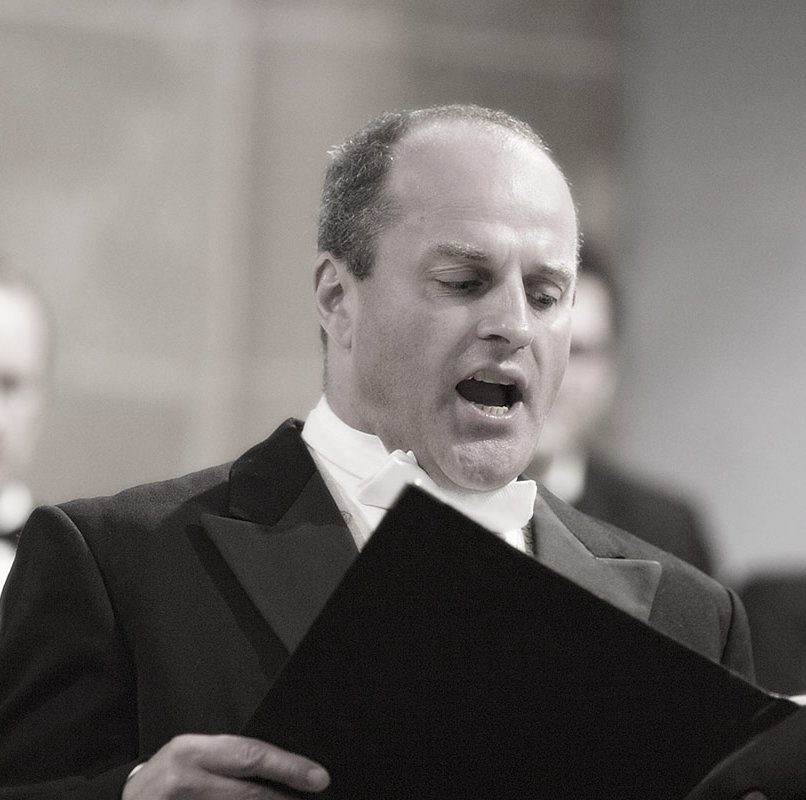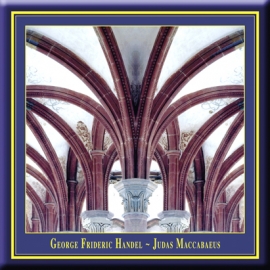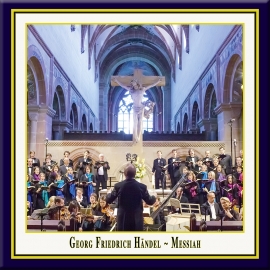
This is a drum beat...
The technical sounding, outstandingly successful recording supplies the discography of the work with an interesting and worth listening to variant on the recordings by Harnoncourt, Gardiner, Marriner and Creed...
Dr. Karl-Georg Berg, DIE RHEINPFALZ

Oratorio in three movements, performed in a historical setting
G.F.Handel's oratorio in three movements, Judas Maccabaeus, is performed in English in a historical setting by Sinéad Pratschke, Catherine King, Charles Humphries, Mark LeBrocq, Christopher Purves, Maulbronner Kammerchor and Musica Florea Prag. Juergen Budday conducts this concert recording from the convent church in Maulbronn.
New Classics UK

Excellent recording
This is an excellent recording of one of Handel's best and most popular oratorios, and is highly recommended...
Classical Music UK & The British Music Society

A surprising, wonderful, buoyant HIP Judas Maccabaeus with an outstanding Sound
I actually received this recording by mistake, but this live performance of Handel's oratorio is absolutely excellent, a refreshing joy to listen to and to return to. For a long time my favorite Maccabaeus has been the Mackerras version on Archiv, with Janet Baker. This recording, conducted by Jurgen Budday, is an Historically Informed Performance, which means they used original instruments and techniques (less string vibrato, smaller orchestra sections with more transparent sound, men using falsetto in place of women in some parts, for example). I will compare the merits of these two.
This Budday HIP performance has gotten under my skin for several reasons: the conducting is exciting and very tasteful; the DDD sound is outstanding; the soloists are excellent, fresh, and stylistically intelligent; the HIP orchestra is tight and accompanies the singing deftly! I had never even heard of Jurgen Budday before.
Mackerras is excellent too, so I am not abandoning that recording any time soon; that recording is ADD, on modern instruments, and not all the soloists sound as fresh or as idiomatic as they do on this Budday recording - which really opened my ears.
To begin with Budday's tempi are buoyant - not simply fast, but well sprung. There is an energy which I think comes in part from it being a live performance. Budday's performance is about 20 minutes shorter than Mackerras' and is thus on 2 disks instead of 3. Mackerras is also a lively conductor and knows his way around Handel; in many ways his performance is a revelation, he is very sensitive in the solo accompaniment, and there is never any feeling of dragging. It must be said that both conductors have put themselves at the service of this music - individual personalities do not emerge to over-interpret Handel's musical and dramatic intentions. The music is allowed to speak for itself in both recordings, and the big moments ("See the Conqu'ring Hero", for example) are given their full due, making great impact (and an interesting contrast) in either scale.
The digital sound on the Budday CDs is excellent, catching the details of the soloists, choir, and orchestra as if it were a studio recording, but with the added atmosphere of a live hall - it sounds absolutely great in my listening room (using Yamaha 200W amp, ADS 9 speakers, and Denon CD player equipment). The Mackerras recording has great studio sound which I would characterize as detailed and full, but less atmospheric since it's ADD and not live. It also sounds a little "closer", which is an artifact of being a studio recording.
Budday's soloists are all excellent and have beautiful voices! They all sound young, fresh, and in particular they sound as if they all live with this kind of music. They sing gloriously - bright and strong in the ensembles, tender and quite moving in solos and duets. The choir (Maulbronner Chamber Choir) is less massive than modern performances tend to use - and thus more detailed and clear, and in some places men use falsetto in place of women in some alto solos, to haunting effect. Mackerras' soloists are all great singers, some of whom are opera stars and others whom are known for HIP careers. Janet Baker in particular is simply captivating, and her duets with Felicity Palmer are quite moving. The Wandsworth School Choir, boys, sounds larger and fuller, thus less detailed and clear by comparison. I know some people feel boys choirs sound too homogeneous, but I think it works well here.
Budday's orchestra (Musica Florea Prag) uses original instruments and HIP techniques and they sound wonderful, you hear everything. The string sound is warm (early HIP performances could sound "dry" to modern ears). The playing is technically excellent, crisp, often breathtaking, and always very sensitive. Mackerras' orchestra, English Chamber Orchestra, is closer to a modern symphony orchestra. They sound full and warm, with a richness that many listeners have become accustomed to, but they are also crisp and totally inside this music.
What to do, what to do? If you're looking for an accurate rendering of this music that is close to what Handel's audience heard, than this Budday recording is the one. If you're a Janet Baker fan (like I am), then Mackerras will be for you. If you prefer digital sound, then Budday is the way to go (although both sound great). If you like to hear the intricate details in the orchestra and chorus, well, then Budday is for you.
For me, I'll tell ya, I am glad I have both now. I simply cannot make up my mind and I love them both!
R. Nadel 'Opinion Above Knowledge!' (Boulder, CO, USA) on Amazon.com











